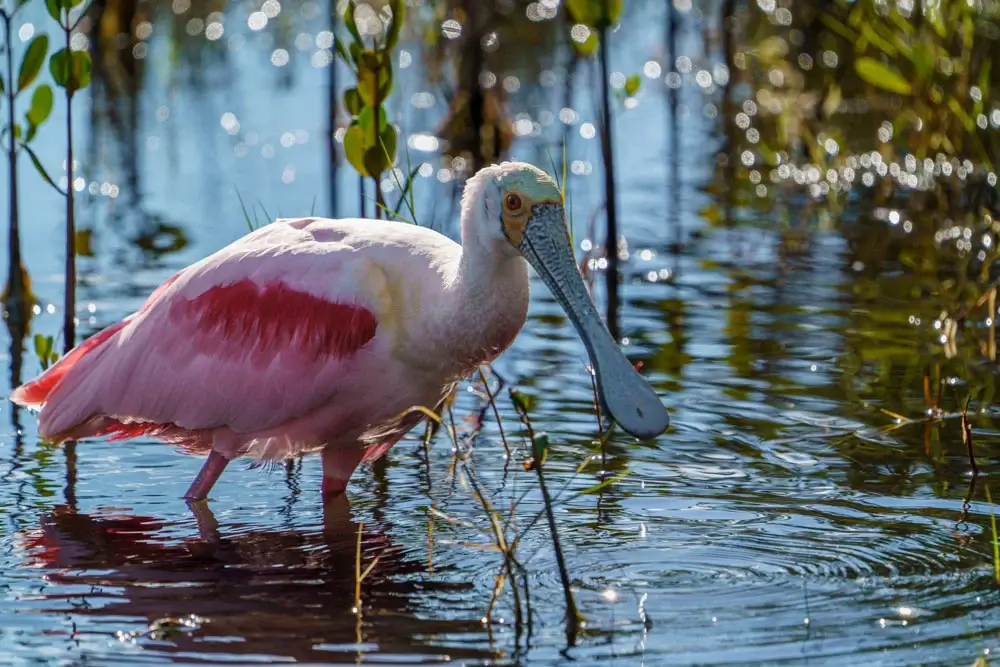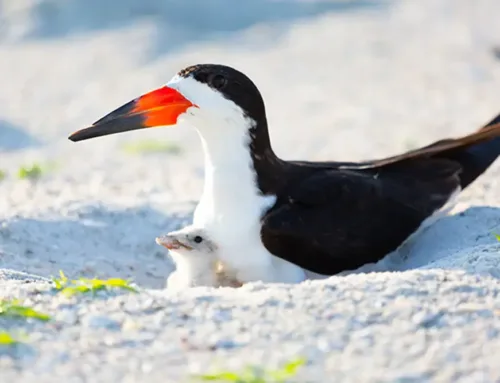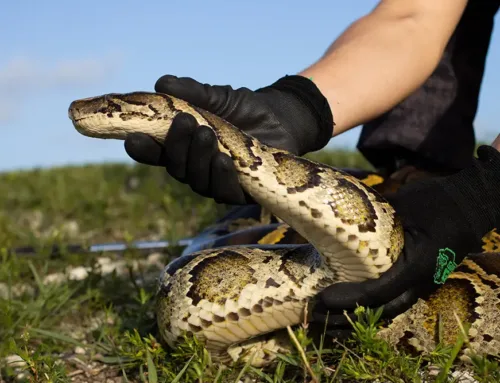They’re back but do you know how they got here? Can you tell me anything about them other than they are beautiful… and loud?
As the Roseate Spoonbills grace us with their vibrant presence this season, it’s a perfect time to delve deeper into the fascinating world of these favorite birds. There’s much to discover about the remarkable Roseate Spoonbill.
These elegant creatures are closely related to Ibises, Herons, and Egrets characterized by long legs and bills, these birds share similar wading behaviors and feeding habits.
Roseate Spoonbills embark on a captivating migratory journey, gracing Florida with their vibrant presence during the breeding season from March to October, where they prefer the bays, marshes, and estuaries along the Gulf Coast. Their winter migration takes them to Central and South America, seeking warmer climates and consistent food sources. As winter transitions to spring, these distinctive birds return to Florida, traversing various habitats along the Gulf Coast. Upon reaching the Sunshine State, they meticulously choose coastal mangroves and dredged-made islands as nesting grounds, showcasing adaptability to changing environments.
Their return to Florida is a testament to their adaptability and resilience. Rising sea levels have reshaped the fringes of wetlands into open ocean, prompting the spoonbills to migrate northward. Land managers are closely following their lead, engaging in ecosystem restoration with a focus on building resilience.
Over the past two decades, Roseate Spoonbills have shifted their nesting grounds, showcasing their ability to adapt to changes in climate and habitat. Now, they raise their young in areas with saltier soils and warmer winters, taking advantage of the mangroves that have colonized what was once freshwater habitat miles inland.
This year’s return is not just a spectacle; it’s a story of survival and triumph. Once victims of the plume trade that reduced their numbers to a mere 30 nesting pairs, Roseate Spoonbills have made a remarkable recovery. Their specialized spoon-shaped bill, equipped with sensitive nerve endings, plays a crucial role in capturing prey in shallow waters.

Beyond their aesthetic appeal, Roseate Spoonbills serve as “indicator species” for water quantity and quality in the Everglades. Their sensitivity to changes in water levels and quality makes them environmental sentinels, reflecting the delicate balance of their ecosystem.
So, as you admire the beauty of the Roseate Spoonbills gracing Florida this season, take a moment to appreciate beloved birds. They are not just visitors; they are an integral part of the natural tapestry, reminding us of the resilience and wonder of the natural world.






